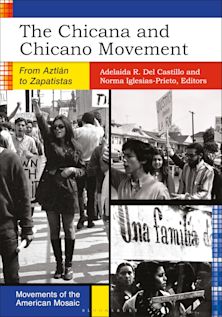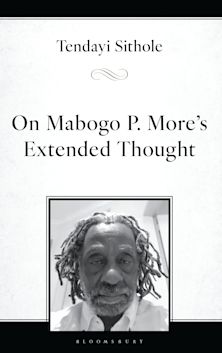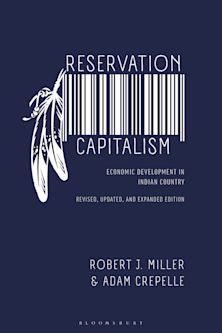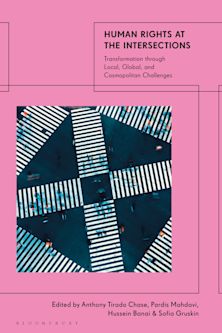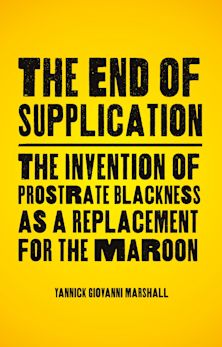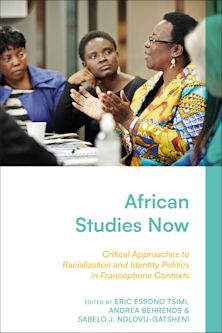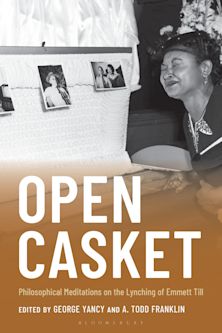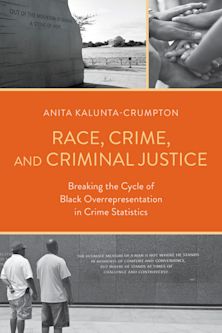- Home
- ACADEMIC
- Race & Ethnicity Studies
- Slavery in the Age of Memory
Inspection copy added to basket
Choose your preferred format. If you would prefer an ebook and it is not displayed below, please visit our inspection copies page.
Please note ebook inspection copies are fulfilled by VitalSource™.
Buy from Bloomsbury eTextBooks
You are now leaving the Bloomsbury Publishing website. Your eBook purchase will be with our partner https://www.vitalsource.com.
Your credit card statement will show this purchase originating from VitalSource Technologies. They will also provide any technical assistance you might require.
You must sign in to add this item to your wishlist. Please sign in or create an account
Description
Named one of The Best Black History Books of 2020
Exploring notions of history, collective memory, cultural memory, public memory, official memory, and public history, Slavery in the Age of Memory: Engaging the Past explains how ordinary citizens, social groups, governments and institutions engage with the past of slavery and the Atlantic slave trade. It illuminates how and why over the last five decades the debates about slavery have become so relevant in the societies where slavery existed and which participated in the Atlantic slave trade.
The book draws on a variety of case studies to investigate its central questions. How have social actors and groups in Europe, Africa and the Americas engaged with the slave past of their societies? Are there are any relations between the demands to rename streets of Liverpool in England and the protests to take down Confederate monuments in the United States? How have black and white social actors and scholars influenced the ways slavery is represented in George Washington's Mount Vernon and Thomas Jefferson's Monticello in the United States?How do slave cemeteries in Brazil and the United States and the walls of names of Whitney Plantation speak to other initiatives honoring enslaved people in England and South Africa? What shared problems and goals have led to the creation of the International Slavery Museum in Liverpool and the National Museum of African American History and Culture in Washington DC? Why have artists used their works to confront the debates about slavery and its legacies?
The important debates addressed in this book resonate in the present day. Arguing that memory of slavery is racialized and gendered, the book shows that more than just attempts to come to terms with the past, debates about slavery are associated with the persistent racial inequalities, racism, and white supremacy which still shape societies where slavery existed. Slavery in the Age of Memory: Engaging the Past is thus a vital resource for students and scholars of the Atlantic world, the history of slavery and public history.
Table of Contents
Acknowledgements
Introduction: Slavery and Memory
1. Weaving Collective Memory
2. Shrines of Cultural Memory
3. Battles of Public Memory
4. Setting Slavery in the Museum
5. Memory and Public History
6. Art of Memory
Conclusion: The Persistence of the Past
Notes
Bibliography
Index
Product details

| Published | 15 Oct 2020 |
|---|---|
| Format | Ebook (PDF) |
| Edition | 1st |
| Extent | 272 |
| ISBN | 9781350048478 |
| Imprint | Bloomsbury Academic |
| Illustrations | 15 bw illus |
| Publisher | Bloomsbury Publishing |
About the contributors
Reviews
-
The Atlantic system of slavery shaped the characters of all the countries that slavery touched. Richly researched, Slavery in the Age of Memory is a fascinating and necessary look at how former slave societies, from Brazil to Virginia, have tried to process the memory of slavery in the midst of lingering traumas wrought by the institution.
Annette Gordon-Reed, Professor of Law and History, Harvard University, USA
-
An important, comprehensive and insightful analysis of 'modalities of memory' of slavery, this book is multi-layered, versatile and compelling. Revealing herself once again as one of the foremost international experts in the field, Professor Araujo meets and surpasses her long-established reputation for rigorous investigation, critical depth and astute observations.
Stephen Small, Professor of African American Studies, University of California, Berkeley, USA
-
Drawing on a wide array of sources, Ana Lucia Araujo explores the ways that slavery and the Atlantic slave trade have been remembered and commemorated across the globe. From the Americas to Europe and Africa, Slavery in the Age of Memory demonstrates that people and institutions are still wrestling with slavery's past. This book is timely and necessary.
Erica Armstrong Dunbar, Charles and Mary Beard Professor of History, Rutgers University, USA













